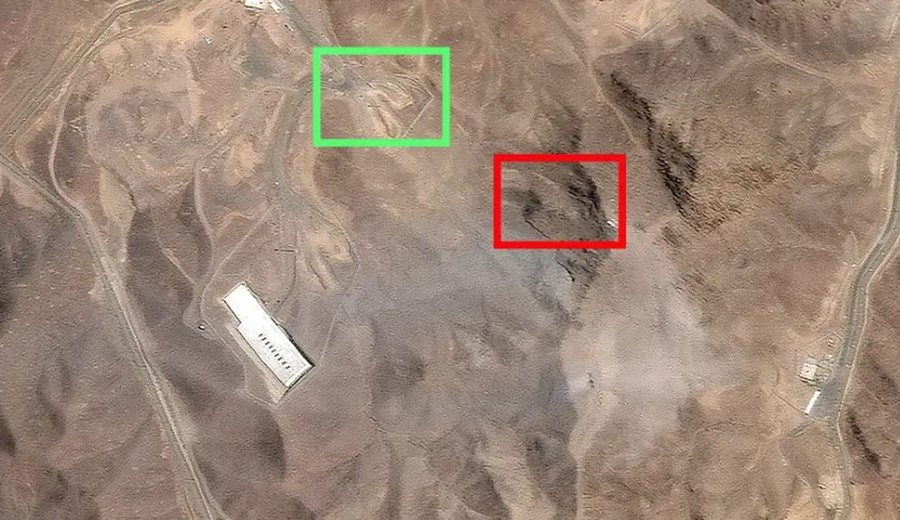
Experts say Iran's nuclear program remains operational despite massive bombing. Tehran refuses inspections while Washington threatens new attacks.
On June 28, Rafael Grossi, the director of the International Atomic Energy Agency (IAEA), said that the Iranians could resume uranium enrichment "within months" or sooner. He contradicted US President Donald Trump, who had earlier said that attacks on Iran's nuclear facilities had "set their nuclear program back decades."
The US used a total of 14 GBU-57 bombs, each weighing 13,600 kilograms, as well as 30 Tomahawk missiles on June 22 against Iran. The targets were three major nuclear facilities at Fordow, Isfahan, and Natanz. The bombs used were designed to penetrate deep into the ground with a high explosive charge, to destroy even highly resistant underground structures and objects.
According to Jeffrey Lewis, an arms control expert at the Middlebury Institute for International Studies, the facilities attacked were severely damaged. But he added that many of the facilities remained intact.
"I think a lot of the controversy stems from the fact that many of the targets were not hit," Lewis told Deutsche Welle.
Of particular note is the question of where 400 kilograms of 60 percent enriched uranium are now. "Most of that uranium was not at the Fordo complex," he explained.
Many, he said, do not understand exactly how Iran's nuclear program is organized. "The uranium is enriched and stored at Fordow, but most of it is later transported to another location near Isfahan."
He declined to comment on the damage at Fordow. "The US military uses a model of the facility that allows for predictions. This model may be accurate, but it may also be wrong. It will be very difficult to know exactly what happened at Fordow until someone gets inside."
Difficult monitoring
US President Donald Trump, on the other hand, has said he does not believe Iran was able to remove stockpiles from the facilities before the attack. "It's very difficult and we gave almost no warning," the president said in an interview with Fox News last weekend.
Secretary of State Marco Rubio has requested a visit from inspectors from the International Atomic Energy Agency (IAEA) to get a clear picture of the situation. IAEA chief Rafael Grossi has asked Tehran to enter the facilities damaged after the attack in order to inspect its stockpiles of enriched uranium.
The Iranian government has so far refused. The parliament in Tehran also voted to suspend cooperation with the IAEA after the agency failed to formally condemn the Israeli and American attacks.
"The Atomic Energy Organization of Iran will suspend cooperation with the IAEA until the security of our nuclear facilities is guaranteed," parliament speaker Mohammad Bagher Ghalibaf announced on state television on June 26.
This has made monitoring Iran's nuclear program much more difficult for the IAEA, says political analyst Hamid Reza Azizi of the Science and Policy Foundation (SWP) in Berlin. Azizi recalls that Iran began "gradually reducing its commitments" after the US withdrew from the nuclear deal in 2018.
Under the nuclear deal (JCPOA), Iran was obligated to report all of its nuclear activities transparently to the IAEA. Since 2019, experts say, the International Atomic Energy Agency's view of Iran's activities in this area has become increasingly unclear.
"They suffered a lot of damage from the military attack, but they also realized that they could survive such an attack," warns Lewis.
If the facilities are intact: Trump threatens new attacks
Iran's supreme leader, Ayatollah Ali Khamenei, condemned the US attacks on nuclear facilities and called them largely ineffective: "They failed to achieve anything significant."
Iranian state media and politicians acknowledge that damage has been done but insist there have been no catastrophic consequences. US President Donald Trump said at a White House press conference on Friday that he would "without a doubt" attack Iran again if intelligence agencies conclude that the country is continuing to enrich uranium to worrying levels./ DW (A2 Televizion)











